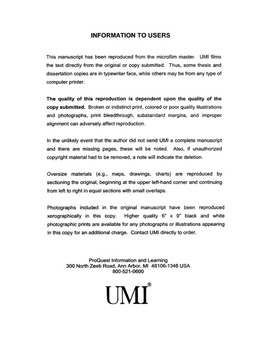| dc.contributor.advisor | Wesson, Cameron B., | en_US |
| dc.contributor.author | Rees, Mark A. | en_US |
| dc.date.accessioned | 2013-08-16T12:18:06Z | |
| dc.date.available | 2013-08-16T12:18:06Z | |
| dc.date.issued | 2001 | en_US |
| dc.identifier.uri | https://hdl.handle.net/11244/273 | |
| dc.description.abstract | Theories of cultural evolution have been called into question during the past few decades, recognizing that concepts such as "chiefdom" and "cultural adaptation" do not directly address changes in power relations or social inequalities. Political economy and power have begun to replace systemic generalizations regarding cultural evolution. The present study examines the development and decline of Native American polities in late prehistoric and protohistoric southeastern North America, what is commonly referred to as the Mississippi Period (ca. AD 800--1700) or Mississippian culture. The meanings of "Mississippian" have also changed, reflecting theoretical trends and the accrual of new data. The historical trajectories of Mississippian polities did not follow a uniform or simultaneous cultural expansion, adaptation, evolution, or decline. Recent studies have proposed that structural instabilities were an underlying factor in the cyclical recurrence of simple and complex chiefdoms. An alternative approach is based on political culture as an historical process of structural power and political-symbolic actions. | en_US |
| dc.description.abstract | Previous investigations of Moundville and outlying mound sites in the Black Warrior Valley of west-central Alabama are reconsidered in light of recent chronological refinements. Fieldwork conducted as part of this research adds to existing knowledge of Moundville's countryside during an era of unprecedented political consolidation (ca. AD 1200--1300) and subsequent decentralization. Mound construction at outlying sites contributes to an understanding of Moundville's historical trajectory. While Mississippian political culture in the Black Warrior Valley was increasingly decentralized after AD 1350, the site of Moundville retained its ceremonial significance as a mortuary center. In contrast, protohistoric polities in the Southern Appalachians and Eastern Lowlands of the Central Mississippi Valley followed distinct historical trajectories. The development and decline of these polities can be understood in terms of contrasting evidence for political consolidation, coalition building, and coercive violence. Mississippian political culture is examined in terms of gifts of food and feasting, craft goods, monumental landscapes, and coercive violence, as opportunities for the negotiation of symbolic capital. Beyond a critical reassessment of cultural evolution, discontinuity, and collapse, this research has broader implications for a rapprochement of archaeology and historical anthropology. | en_US |
| dc.format.extent | 2 v. (xxii, 627 leaves) : | en_US |
| dc.subject | Mississippian culture Southern states. | en_US |
| dc.subject | Moundville (Ala.) Antiquities, Prehistoric. | en_US |
| dc.subject | Mounds Alabama. | en_US |
| dc.subject | Anthropology, Archaeology. | en_US |
| dc.title | Mississippian political culture: Contrasting historical trajectories in southeastern North America. | en_US |
| dc.type | Thesis | en_US |
| dc.thesis.degree | Ph.D. | en_US |
| dc.thesis.degreeDiscipline | Department of Anthropology | en_US |
| dc.note | Adviser: Cameron B. Wesson. | en_US |
| dc.note | Source: Dissertation Abstracts International, Volume: 62-02, Section: A, page: 0648. | en_US |
| ou.identifier | (UMI)AAI3004866 | en_US |
| ou.group | College of Arts and Sciences::Department of Anthropology | |
